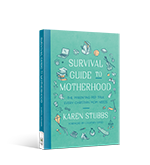
Sign Up for Updates
Connect
TOPICS
- Latest Blog
- Fiction
- Inspirational/Devotional
- Men's Christian Living
- Prophecy
- Women's Christian Living
- View All
ARCHIVES
Why do People Reject the Good News?
Posted on Jun 02, 2022 Topic : Inspirational/Devotional, Women's Christian Living
Posted by : Pam Ferrel, Jean E. Jones, Karla Dornacher

When Expectation Meets Reality
As I shared in the introduction to this book, when I was 14, a teenage boy told me I needed to accept Jesus as Lord in order to go to heaven. I thought that was crazy. I told him I could see someone like Moses or David being the way to heaven because they were great leaders. But Jesus was just a shepherd who liked children and couldn’t get along with adults, so they killed him.
Obviously, not being raised in the church left me with misunderstandings. A few months later, I got hold of a New Testament and started reading it from the beginning. By the time I got to John’s Gospel, I thought my opinion of Jesus was justified. After all, he argued with everyone and constantly claimed to know more than others, so of course, no one liked him. I didn’t either.
I expected Jesus to be a certain way, and my expectations colored what I read. But what I believed clashed with Jesus’s teaching in John 5, which we’ll read today. Indeed, his teaching clashed with most of his listeners’ expectations about the Messiah and the prophet like Moses. Just as my preconceived notions kept me from seeing who Jesus really was, so did theirs.
God’s Word to Us in the Old Testament
Chapter 1 mentioned that Moses promised that one day God would send a prophet like him. In chapter 2, we read that the Samaritans thought this prophet and the Jews’ Messiah were the same person. Some of the ordinary Jews thought they might be the same person too. However, the Jewish leaders taught that they were different people. Still, Jesus revealed he was the Messiah to the Samaritan woman. In today’s reading, Jesus will show that he is also the prophet like Moses, so let’s read about him.
Moses Prophesied About a Future Prophet Like Moses
Here’s what Moses said about this prophet in Deuteronomy 18:15, 17-19:
“The Lord your God will raise up for you a prophet like me from among you, from your brothers—it is to him you shall listen…And the Lord said to me,“
"…I will raise up for them a prophet like you from among their brothers. And I will put my words in his mouth, and he shall speak to them all that I command him. And whoever will not listen to my words that he shall speak in my name, I myself will require it of him.”
We’ve already seen some similarities between Moses and Jesus. For example, just as Moses turned water to blood as a sign God sent him, so Jesus turned water to wine as a sign God sent him. Just as Moses said he would lead people to the earthly promised land, so
Jesus says he is leading people to another promised land: the kingdom of God. Additionally, Moses led much like a king; Jesus has revealed he is the Jews’ longed-for king—the Messiah.
Here are other events in Moses’s life that will relate to what we read about Jesus today.
truly had sent him.
the law should apply to people’s lives.
Take a moment to pray for insight as you read God’s Word.
1. Turn to Exodus 16.
(a) What did God call the food he gave the people (verse 4)? (b) Why did he send the people out to gather it (verse 4)? (c) What should the people know when they see the food (verse 12)? (d) What did the people call the food (verse 31)?
Eventually, the people grumbled that they were tired of manna. But it sustained them until they reached the promised land, at which point it stopped appearing.2 Psalm 78 later describes the miraculous meals as bread from heaven.
The Law of Moses Commanded Rest on the Sabbath.
On the way to the promised land, Moses gave the Lord’s Ten Commandments to the people on stone tablets. The fourth is “Remember the Sabbath day, to keep it holy. Six days you shall labor, and do all your work, but the seventh day is a Sabbath to the Lord your God. On it you shall not do any work.”3
This commandment meant the Jews rested on the Sabbath (sundown Friday to sundown Saturday) to keep it holy—that is, set aside for the Lord. This was a sign of their covenant with God: Instead of a signature on paper, they showed they accepted God’s covenant by resting each Sabbath (Exodus 31:13). God in his love gave them something beneficial as a sign of their covenant relationship with him.
The Prophet Daniel Prophesied a Future Resurrection
Centuries later, the prophet Daniel lived in exile. There, the Lord gave him a vision about
the time of the end.
2. Read Daniel 12:1-2. (a) Where are the names of the people who will be delivered written (verse 1)? (b) To what will the dead (“those who sleep in the dust of the earth”) awaken (verse 2)? God revealed to Daniel that he will resurrect all the dead to one of two destinies.
The Pharisees interpreted the Law of Moses. As mentioned in chapter 2, the Pharisees had oral traditions that interpreted the law of Moses. These included what people could and could not do on the Sabbath.
God’s Word to Us in John
In today’s chapters, the Sanhedrin is the highest Jewish tribunal. Its members come from two sects, Sadducees and Pharisees. The Pharisees are looking for a Messiah who will rule as king but will allow them to have authority over spiritual matters. They don’t want a king who is also a prophet like Moses. After all, Moses was the supreme judge over all spiritual matters in his day.
3. Read John 5:1–6:46. (We’re stopping in the middle of a conversation.) What stands out to you? Why?
Did you notice how Jesus differed from many expectations? In the next daily lesson, we’ll dive into the details of the healing at the pool.
4. What mistaken notions did you initially have about Jesus? How did you discover
your mistake?


